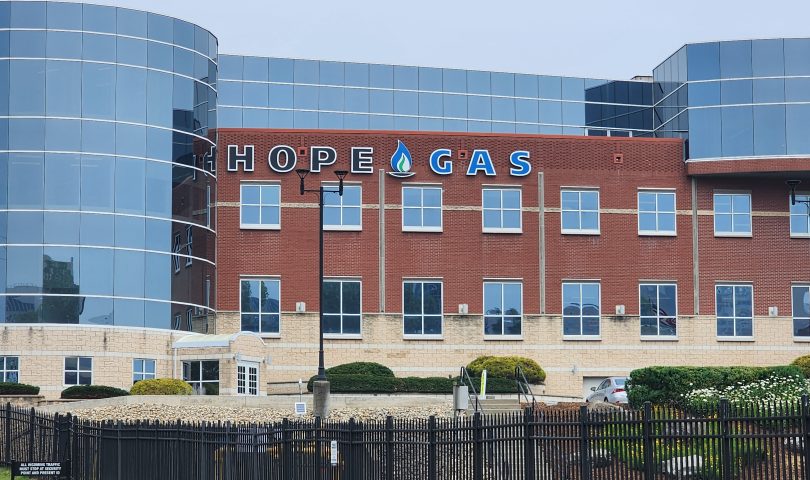MORGANTOWN – Public Service Commission staff are objecting to a Hope Gas request to protect costs, revenues and maps associated with its proposed new Morgantown-area pipeline from public disclosure.
In a Thursday filing, staff said the public has a right to know the information Hope wishes to withhold, and counters each of the reasons Hope offered in its filing for a protective order in the project.
Hope Gas filed with the PSC on Sept. 22 for its OK to build a new 30-mile pipeline from Wadestown in western Monongalia County eastward to the edge or Morgantown and then northwest to site near Osage. All the dollar figures in the public copy of the filing are redacted and referred to as confidential.
Then, in an Oct. 12 filing, Hope sought the protective order to keep the information confidential and explained why.
First, one of the project application’s exhibits contains certain highly detailed maps and drawings “that provide precise locations of facilities that should not be disclosed for security reasons.”
Second, another exhibit contains project costs that should remain confidential because certain project work remains subject to a bidding procurement process.
And third, testimony by Craig C. Colombo, Hope’s vice president of gas supply, should be confidential where he discusses estimated revenue from certain services Hope might provide where the pricing for such services is subject to commercial negotiation with customers.
Replying to Hope’s arguments, staff first said, “The aggregate cost estimate of the project is a not a trade secret.”
And while Hope is not immediately seeking to recoup the costs of the pipeline, it plans to in later filings, PSC staff said. “The total cost of the project may not have an immediate impact on the bills of Hope’s customers, but that cost will rear its head when Hope returns before the commission. … Hope’s customers deserve to know how much this project is going to cost and how that cost could be attributed to them in those future proceedings.”
Other utilites have disclosed their costs in multi-million dollar projects, staff said.
Also, staff said, revealing aggregate costs won’t harm negotiations. Hope can still maintain confidentiality on specific line items where it’s seeking competitive pricing.
On the matter of the maps, staff said they are not specific engineering plans and descriptions subject to protection under the Freedom of Information Act.
“The public has a substantial interest in viewing these maps in order to gauge what impact this project will have on private property and how it could affect their property values and property usages,” stff said. “The public also has a right to see how the path of this project will impact any public lands if there is such an impact at all.”
In a separate staff memorandum filed the same day, staff noted that they signed a protective agreement with Hope on Sept. 22. However, “Legal staff has reviewed the motion for protective order and finds that it is overly broad. Hope should disclose the aggregate costs and revenue estimates as well as the maps for the new and update pipeline facilities. The signed protective agreement does not prevent Staff from challenging the request for the protective order.”
The only hint at the possible cost of the project appears in the original filing, where Hope cites state code that sets a time limit for the PSC to render a final decision for any project with a projected total cost exceeding $50 million.
Hope is seeking a PSC order on the project by June 18, 2024. It says it must begin construction no later than Nov. 1, 2024, to fit within narrow legal windows for certain tree clearing activities, and in order to have the new facilities come into service by Nov. 1, 2025 – the beginning of that winter’s heating season.
Additional restoration and cleanup would continue to the second quarter of 2026.
Hope projects the project to generate about 600 construction jobs, “the majority of which will be West Virginia based labor.”
Email: dbeard@dominionpost.com




